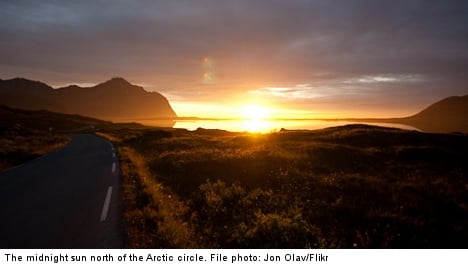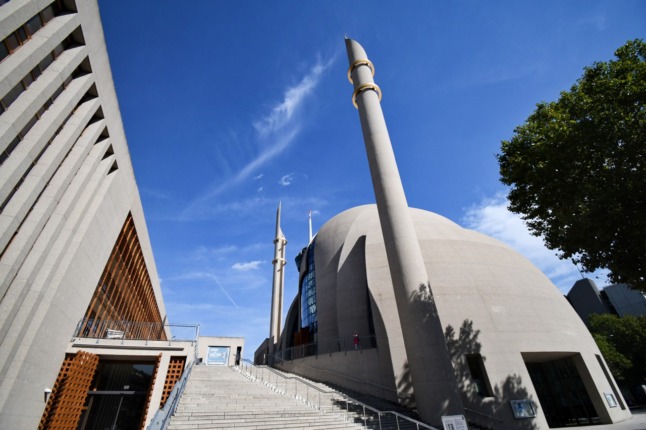“Kiruna is as high up as you get in Sweden, the sun never sets during this month,” Ali Melhem, 45, who has lived in Kiruna for 24 years told The Local. As the fasting month is set by the moon, Ramadan usually moves about 10 days forward in the calender each year, which means this is the first summer it has proved a 24-hour dilemma for Melhem.
“When I first moved here, Ramadan was in the spring.”
In attendance for the day when Ramadan would run smack bang into the near three-month stretch of never-ending sun, Shia Muslim Melhem has not remained idle in doing his research.
“My wife and I couldn’t make that choice, so we’ve consulted mullahs from Iraq to Iran. They say we can wait to fast until the autumn,” he said, adding that some Sunni Muslims in Kiruna have chosen to break their fast when the sun sets over Mecca as a solution to their dilemma. Ramadan this years started on July 9th and should last until August 7th.
“I did check if I could follow the sun times in a nearby Swedish town like Luleå or Umeå, but even fasting for 23 hours a day is a bit difficult,” father-of-three Melhem said.
There is still no consensus, however, on how Muslims living in Scandinavia should observe Ramadan without jeopardizing their health, according to Omar Mustafa, president of the Islamic League in Sweden.
“Several imams and organisations have different opinions. It is up to each individual to decide, but it is not meant that you should fast around the clock. Islam provides many options,” Mustafa told the media.
Ramadan is an annual observance by Muslims who are obliged to fast from dawn to sunset for a month often in summer. Many abstain from sexual relations as well as food, drink and smoking. Islam does allow some exceptions from participating in the annual fast such as pregnant women, diabetics and the elderly.
In nearby Finland it is also a problem with up to 21 hours of daylight during the summer. A compromise has been suggested by Imam Abdul Mannan, president of the Islan Society of Northern Finland.
“The Egyptian scholars say that if the fasting days are long – more than 18 hours – then you can follow the Mecca time or Medina time, or the nearest Muslim country time,” he said.
“The other point of view from the Saudi scholars says whatever the day is – long or short – you have to follow the local time.”
Ann Törnkvist and Patrick Reilly



 Please whitelist us to continue reading.
Please whitelist us to continue reading.